Li
Libertad (1875-1908)
 Also known as Joseph Albert and Albert Libertad, Libertad was an individualist anarchist propagandist. Abandoned by his parents as a baby, Libertad was a child of the Public Assistance in Bordeaux. As a result of a childhood illness he lost the use of his legs, but he put his handicap to good use: he used his crutches as weapons against the police. He moved to Paris at 21, where he immediately was active in anarchist circles, going so far as to live in the offices of the journal “Le Libertaire.” Member of various anarchist groups, and a supporter of “propaganda by the deed,” he was nevertheless an abstentionist candidate in Paris’s 11th arrondissement in 1902 and 1904, seeing his candidacy as a means of spreading anarchist ideas.
Also known as Joseph Albert and Albert Libertad, Libertad was an individualist anarchist propagandist. Abandoned by his parents as a baby, Libertad was a child of the Public Assistance in Bordeaux. As a result of a childhood illness he lost the use of his legs, but he put his handicap to good use: he used his crutches as weapons against the police. He moved to Paris at 21, where he immediately was active in anarchist circles, going so far as to live in the offices of the journal “Le Libertaire.” Member of various anarchist groups, and a supporter of “propaganda by the deed,” he was nevertheless an abstentionist candidate in Paris’s 11th arrondissement in 1902 and 1904, seeing his candidacy as a means of spreading anarchist ideas.
In 1905 Libertad founded what was probably the most important individualist anarchist journal, “l’anarchie,” which included among its collaborators André Lorulot, Emile Armand, and Victor Serge and his companion Rirette Maitrejean.
See Libertad Archive.
Li Dazhao (Li Ta-chao) (1888-1927)
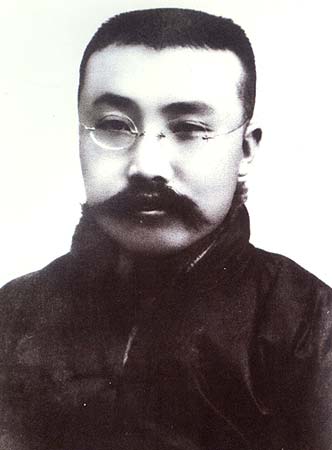 Cofounded Chinese Communist Party (CCP) with Chen Duxiu (Chen Tu-hsiu) in 1921. Worked as a librarian at the Beijing University Library and was among the first of the Chinese intellectuals who supported the Bolshevik government in the USSR. Mao Zedong was an assistant librarian during Li’s tenure at the library and Li was one of Mao’s earliest and most prominent influences. By many accounts, Li was a nationalist and believed that the peasantry in China were to play an important role in China’s revolution.
Cofounded Chinese Communist Party (CCP) with Chen Duxiu (Chen Tu-hsiu) in 1921. Worked as a librarian at the Beijing University Library and was among the first of the Chinese intellectuals who supported the Bolshevik government in the USSR. Mao Zedong was an assistant librarian during Li’s tenure at the library and Li was one of Mao’s earliest and most prominent influences. By many accounts, Li was a nationalist and believed that the peasantry in China were to play an important role in China’s revolution.
Under the leadership of Li and Chen, the CCP developed a close relationship with the Comintern. The Comintern’s directives to the CCP were provided by the Comintern’s representative in China, Henk Sneevliet. At the direction of the Comintern, Li and Chen were inducted into Sun Yat-sen’s Guomindang Party in 1922. Li was elected to the Guomindang’s Central Executive Committee in 1924. The CCP’s relationship with the Guomindang was controversial, particularly to many members of the CCP and the relationship gradually deteriorated.
Tensions between the Comintern, the Guomindang, and the CCP presented opportunities for political intrigue and opportunism. As part of Chiang Kai-shek’s early efforts to liquidate communists, mass detentions of suspected communists began in early 1927. During the during a raid on the Soviet embassy in Canton, Li was captured and, with nineteen others, he was executed on the orders of the Manchurian general Zhang Zuolin (Chang Tso-lin) in April 1927.
Li Lisan (Li Li-san) (1889-1967)
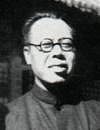 An early member of the Chinese Communist Party Li’s power was at its peak from 1928 to 1930. He best known for advocating the so-called “Li Lisan” line during the early years of China’s “Nationalist-Communist Civil War.”
An early member of the Chinese Communist Party Li’s power was at its peak from 1928 to 1930. He best known for advocating the so-called “Li Lisan” line during the early years of China’s “Nationalist-Communist Civil War.”
On June 11, 1930, under his leadership, the Political Bureau of the Central Committee of the Party adopted a resolution entitled “The New Revolutionary High Tide and Winning Victory First in One or More Provinces,” which advocated that preparations be made for immediate armed insurrections throughout the country. He drew up an adventurist plan to organize such insurrections in the key cities and to amass all the forces of the Red Army to attack these cities. He subsequently combined the leading organs of the Party, the Youth League and the trade unions at all levels into action committees for insurrection. These “Left” mistakes became known as the “Li Lisan line.”
From a footnote to Liu Shaoqi’s 1943 work Eliminate Menshevist Ideology Within the Party
Li’s position, which essentially called for a premature escalation of an armed insurgency in China’s city and countryside, was the subject of extensive criticism following major military victories by Kuomintang (KMT) forces. Of particular not is the fact that Li’s line stressed the importance of urban uprisings over Mao’s peasant movement. Li was subsequently denounced, losing his political power. He was sent to Moscow by the CCP where he lived in exile for fifteen years.
Li returned to China in 1946, was appointed to the position of Minister of Labor and later to several other political posts, including Vice-Chairman of the All-China Federation of Trade Unions. He was again denounced following the onset of the Great Proletarian Cultural Revolution and he reportedly committed suicide shortly thereafter. He was posthumously rehabilitated in 1980.
Li Hsüeh-feng
First Secretary of North China Bureau of Communist Party. Accused by Mao of conspiring against him.
Liebknecht, Wilhelm (1826-1900)
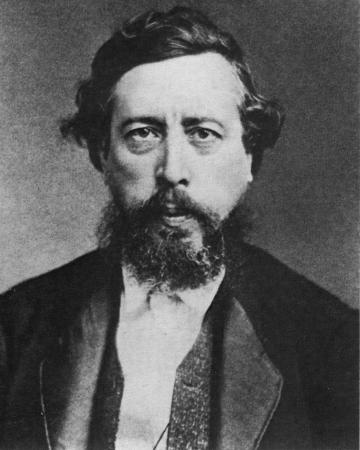 A leader of the German working class movement.
Participant in 1848 revolution. Emigrated to Switzerland, then to England,
there a member of League of Communists. In 1862 Wilhelm returned to Germany, and
in 1863-65 was a member of the General German Workers' Association. In
1866, became founder and leader of the Saxon People's Party, which he --
jointly with August Bebel -- represented as the first Deputy of a left-wing
party in the North German Reichstag. In 1869, was co-founder of the Social-Democratic
Workers' Party. Member of the German Reichstag (1874-1900). "Responsible
editor" of Demokratisches Wochenblatt, of Volksstaat, and
of Vorwarts. Father of Karl Liebknecht.
A leader of the German working class movement.
Participant in 1848 revolution. Emigrated to Switzerland, then to England,
there a member of League of Communists. In 1862 Wilhelm returned to Germany, and
in 1863-65 was a member of the General German Workers' Association. In
1866, became founder and leader of the Saxon People's Party, which he --
jointly with August Bebel -- represented as the first Deputy of a left-wing
party in the North German Reichstag. In 1869, was co-founder of the Social-Democratic
Workers' Party. Member of the German Reichstag (1874-1900). "Responsible
editor" of Demokratisches Wochenblatt, of Volksstaat, and
of Vorwarts. Father of Karl Liebknecht.
Further Reading: Wilhelm Liebknecht Archive.
Liebknecht, Karl (1871-1919)
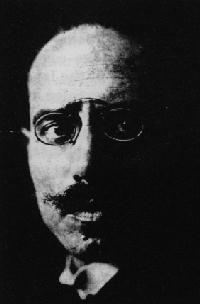 Son of Wilhelm Liebknecht; founding leader of the Socialist Youth International in 1907; Left Wing German Social Democrat. Member of the German Reichstag and Prussian Landtag. Leader of the German revolutionary labor movement, founder with Rosa Luxemburg of the German Communist Party, founder of the Communist Youth movement.
Son of Wilhelm Liebknecht; founding leader of the Socialist Youth International in 1907; Left Wing German Social Democrat. Member of the German Reichstag and Prussian Landtag. Leader of the German revolutionary labor movement, founder with Rosa Luxemburg of the German Communist Party, founder of the Communist Youth movement.
Long before the First World War, he earned revolutionary renown by his struggle against militarism. He was sentenced to 18 months in prison for writing his pamphlet Militarism and Anti-Militarism. Liebknecht’s name is a symbol of revolutionary internationalism and irreconcilable opposition to imperialist war.
He was the first, and only, Deputy to oppose war credits in the Reichstag in 1914. Drafted during the war, he was imprisoned (May 1916 to November 1918) for anti-war activity. and on August 3, 1914 he opposed voting for war credits at a session of the Social-Democratic parliamentary fraction; but under the pressure of party discipline he voted together with the entire party fraction at the Reichstag session on August 4, 1914. When the next vote was taken, on December 2, 1914, he was the only deputy who cast his vote against. But even before that, in October of the same year, he published, jointly with Rosa Luxemburg, Franz Mehring and Clara Zetkin, a statement against the official party position in the Swiss Social-Democratic press. In March 1915, when the Reichstag took a vote on war credits, 30 Social Democrats left the chambers and the only ones who voted against were Liebknecht and Otto Rühle. Leader of the International Group that opposed the war. In 1915 he began to organize the Spartacus League and started the publication of the famous Spartacus Letters.
When the Zimmerwald Conference convened, Liebknecht was drafted into the army and could not attend, but he forwarded a letter to this conference which closed with the following words: “Not civil peace, but civil war—that is our slogan.” On January 12, 1916 the Social-Democratic fraction expelled him from its ranks. On May Day 1916 he distributed anti-war leaflets in Potsdam Square in Berlin, was arrested and sentenced to hard labor. The victory of the Russian October found him in prison where he greeted the conquest of the Russian workers and peasants, and summoned the German workers to follow this great example. The November 1918 revolution in Germany freed him from prison, untying his hands for a direct struggle against the social-chauvinists and their centrist allies. Together with Rosa Luxemburg and Leo Jogiches (Tyshko) he organized the Communist Party of Germany which in December 1919 broke all connections with the Independent Social-Democratic Party, headed by Kautsky and Haase. As member of the revolutionary committee, he headed the uprising of the Berlin workers in January 1919. After this uprising was suppressed he was arrested by the Scheidemann government and on January 15, 1919 was assassinated together with Rosa Luxemburg by a gang of German officers, covertly abetted by the Scheidemannists.
"Karl Liebknecht called upon the workers and soldiers of Germany to turn their guns against their own government. Karl Liebknecht did that openly from the rostrum of parliament (the Reichstag). He then went to a demonstration in Potsdamer Platz, one of the largest public squares in Berlin, with illegally printed leaflets proclaiming the slogan "Down with the Government!" He was arrested and sentenced to hard labour. He is now serving his term in a German convict prison, like hundreds, if not thousands, of other true German socialists who have been imprisoned for their anti-war activities.
"Karl Liebknecht and his friend Otto Rühle, two out of one hundred and ten deputies, violated [the SD party] discipline, destroyed the "unity" with the "Centre" and the chauvinists, and went against all of them. Liebknecht alone represents socialism, the proletarian cause, the proletarian revolution. All the rest of German Social-Democracy, to quote the apt words of Rosa Luxemburg (also a member and one of the leaders of the Spartacus group), is a "stinking corpse."
Vladimir Lenin
The Tasks of the Proletariat in our Revolution
Chpt. 10: The Situtation within the Socialist International
Further Reading: Karl Liebknecht Archive.
Lieber, M. I. (Mikhail Isakovich Goldman) (1885-1937)
Leader of the Jewish Bund. Exiled and escaped several times. Later joined Mensheviks and was a close associate of Dan. As Member Central Executive Committee of Soviets, favoured Coalition. Anti-Bolshevik. Shot in 1937.
Lin Biao (1907-1971)
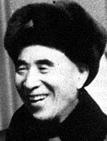 Veteran of Chinese Communist wars against Kuomintang and Japanese forces. Served under Mao Zedong as member of China's Politburo, as Vice-Chairman (1958) and Defense Minister (1959). Lin is widely credited as the architect of China's Cultural Revolution and was responsible for the development of Mao Zedong's “Little Red Book.” Lin was designated as Mao's successor in 1966 but fell out of favor in 1970. Sensing his downfall, Lin reportedly became involved in a coup attempt and attempted to flee to the USSR once the alleged plot became exposed. During his attempted flight from prosecution, his plane crashed in Mongolia, resulting in his death.
Veteran of Chinese Communist wars against Kuomintang and Japanese forces. Served under Mao Zedong as member of China's Politburo, as Vice-Chairman (1958) and Defense Minister (1959). Lin is widely credited as the architect of China's Cultural Revolution and was responsible for the development of Mao Zedong's “Little Red Book.” Lin was designated as Mao's successor in 1966 but fell out of favor in 1970. Sensing his downfall, Lin reportedly became involved in a coup attempt and attempted to flee to the USSR once the alleged plot became exposed. During his attempted flight from prosecution, his plane crashed in Mongolia, resulting in his death.
Further Reading: Lin Biao Reference Archive
Lingg, Louis (1870-1887)
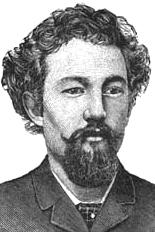 One of the Haymarket martyrs. Lingg was born in Baden, Germany where he had some involvement with labor politics. Emigrating to Chicago in 1885, he was a carpenter by trade, joining the Carpenter's Union as well as the anarchist International Working People's Association (IWPA). The youngest of the eight accused in the Haymarket bombing, he made bombs and had distributed bombs on the day of the Haymarket meeting. He was one of the five condemned to death, but killed himself in his jail cell shortly before the executions were to take place.
One of the Haymarket martyrs. Lingg was born in Baden, Germany where he had some involvement with labor politics. Emigrating to Chicago in 1885, he was a carpenter by trade, joining the Carpenter's Union as well as the anarchist International Working People's Association (IWPA). The youngest of the eight accused in the Haymarket bombing, he made bombs and had distributed bombs on the day of the Haymarket meeting. He was one of the five condemned to death, but killed himself in his jail cell shortly before the executions were to take place.
Further Reading:
Lingg's speech in court
Subject: May Day.
Linnaeus, Carolus (1707-1778)
Swedish naturalist first to classify the plant kingdom and inventor of the "binomial nomenclature" by which all species are classified to this day. He was a creationist, and saw the species as capable of only limited mutation.
Litvinov, Maxim (1876-1951)
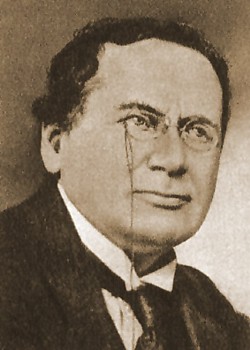 Old Bolshevik, was deputy commissar of foreign affairs, soon to become commissar, 1930-39. Stalin used him to personify "collective security" and "peaceful coexistence" when alliances with the democratic imperialists were sought. He was appointed ambassador to the U.S., 1941-43, and deputy commissar of foreign affairs, 1943-46.
Old Bolshevik, was deputy commissar of foreign affairs, soon to become commissar, 1930-39. Stalin used him to personify "collective security" and "peaceful coexistence" when alliances with the democratic imperialists were sought. He was appointed ambassador to the U.S., 1941-43, and deputy commissar of foreign affairs, 1943-46.
Maxim Litvinov was born into a prosperous Jewish family in Russia in 1876. He left school at seventeen and joined the Russian Army. After leaving the army in 1900 Litvinov joined the illegal Social Democratic Labour Party (SDLP) but was soon arrested by Okhrana. After 18 months in captivity, Litvinov escaped and made his way to Switzerland. He joined the SDLP in exile and joined the editorial board of Iskra.
Litvinov returned to Russia in 1903 and after the 1905 Revolution became editor of the SDLP's first legal newspaper, Novaya Zhizn (New Life).
When the Russian government began arresting Bolsheviks in 1906, Litvinov left the country and spent the next ten years living in London where he was active in the International Socialist Bureau.
After the October Revolution, Litvinov was appointed by Lenin as the Soviet Government's representative in Britain. However, in 1918, Litvinov was arrested by the British Government and held until exchanged for Bruce Lockhart, the British diplomat who had been imprisoned in Russia.
Litvinov was then employed as the Soviet Government's roaming ambassador. It was largely through his efforts that Britain agreed to end its economic blockade of the Soviet Union. Litvinov also negotiated several trade agreements with European countries.
In 1930 Stalin appointed Litvinov as Commissar of Foreign Affairs. A firm believer in collective security, Litvinov worked very hard to form a closer relationships with France and Britain. In 1933 he successfully persuaded the United States to recognize the Soviet government.
His Jewish origins created problems for Stalin during his negotiations with Germany in 1939 and was replaced by Vyacheslav Molotov just before the signing of the Nazi-Soviet Pact.
After the outbreak of war with Germany, Stalin appointed Litvinov as Deputy Commissar of Foreign Affairs. He also served as Ambassador to the United States (1941-43). Maxim Litvinov died in 1951.
In 1924 Maxim Litvinov wrote an autobiography for The Granat Encyclopaedia of the Russian Revolution.
After the October Revolution I was appointed the first ambassador to England. Ten months later I was arrested as a hostage for Lockhart and we were later exchanged. I travelled to Sweden and Denmark for negotiations with the bourgeois governments and concluded a series of agreements on the exchange of prisoners of war. I achieved the removal of the British blockade, made the first trade deals in Europe and dispatched the first cargoes after the blockade had been lifted.
From Louise Bryant's Mirrors of Moscow
Liu Shaoqi (1898-1969)
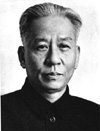 Chinese communist politician. Fought as part of communist forces in China during struggles angainst the Kuomintang and Imperial Japanese forces. Held position of Chairman of the People's Republic of China and widely totued as the successor of Mao Zedong from 1959 until his purge from the CCP in 1968. Died of medical neglect while in captivity. Posthumously rehabilitated by the CCP following the death of Mao Zedong.
Chinese communist politician. Fought as part of communist forces in China during struggles angainst the Kuomintang and Imperial Japanese forces. Held position of Chairman of the People's Republic of China and widely totued as the successor of Mao Zedong from 1959 until his purge from the CCP in 1968. Died of medical neglect while in captivity. Posthumously rehabilitated by the CCP following the death of Mao Zedong.